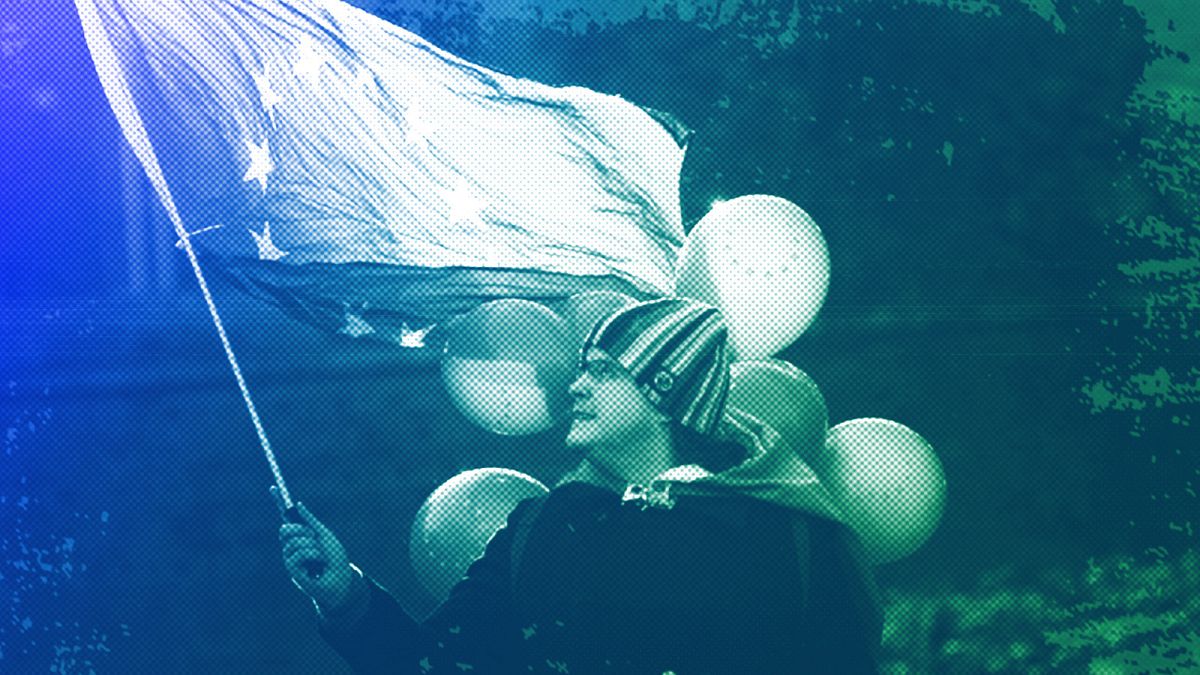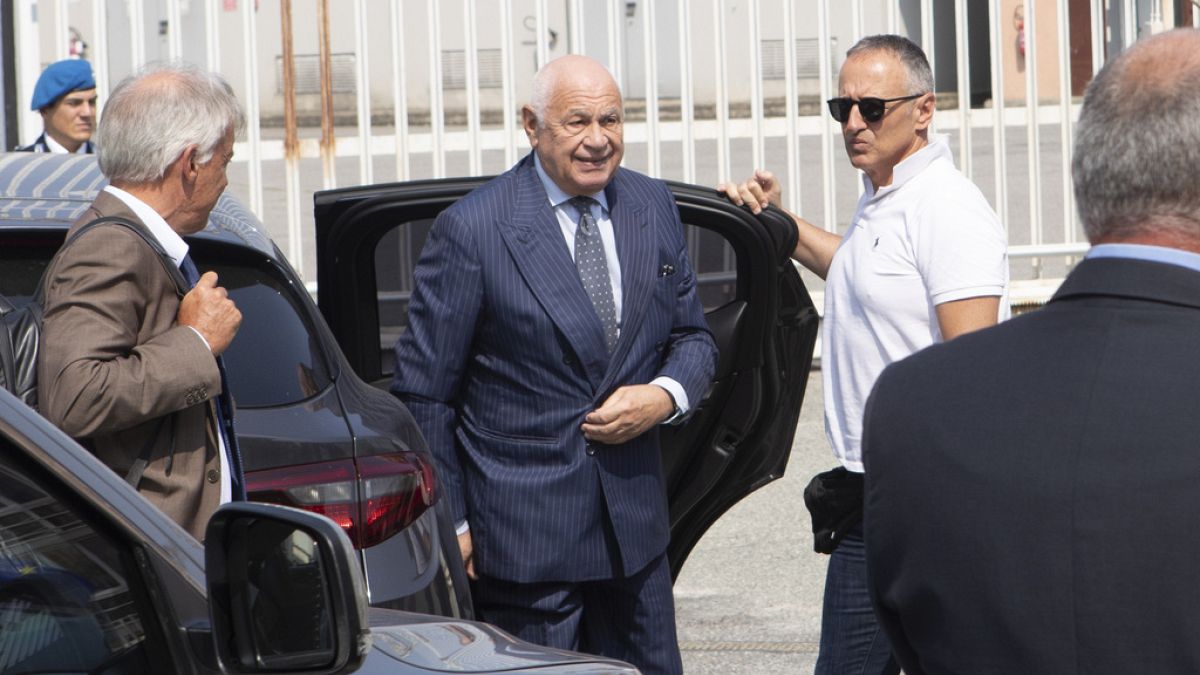The year of wars and elections revealed this about European sentiment

By André Wilkens, Director, European Cultural Foundation, Pawel Zerka, Senior Policy Fellow, ECFR
The opinions expressed in this article are those of the author and do not represent in any way the editorial position of Euronews.
The currently self-absorbed Brussels would better get the message. If we postpone honest conclusions to the next elections in 2029, the European drama may indeed enact its final act, André Wilkens and Pawel Zerka write.
Every five years, the European Union re-enacts the same drama. In its first act, political parties and candidates seek the voters’ attention by presenting the European Parliament election as a decisive battle for the future of Europe.
In the second act, all of them, for a while, look thoughtfully at the result — often quickly concluding it does not convey any clear message. Then, they return to business-as-usual activities, which is the drama’s third act.
Since the end of the summer, Brussels has been abuzz with politics. Ursula von der Leyen has been struggling to assemble her new Commission, while MEPs have been sharpening their swords ahead of the hearings of would-be commissioners.
In the midst of this tussle, it is easy to forget that some 182 million people — representing 51 per cent of the EU’s electorate — bothered to cast their votes in early June.
The most visible effect of their democratic engagement is the current composition of the European Parliament, with 720 MEPs owing their mandate to the voters’ support.
But the message that the European elections convey goes way beyond the question of how people voted. It would be reckless on the part of the European political class if they didn’t also reflect on who voted, who didn’t, and why.
Why are we feeling the way we do?
Just like any other major shocks and events — from the COVID-19 pandemic to the wars in Ukraine and Gaza — this year’s European elections made it possible to observe, in action, how Europeans feel about Europe.
We believe that they have exposed three particularly important “blind spots” in the EU of today — understood as inconvenient topics that, despite resurging from time to time, tend to be left to one side until sudden events bring them inescapably to the fore.
First, these elections failed to convince Europe’s youngest voters. Despite being, on average, more pro-European and tolerant on social questions than older generations, they often did not turn out to vote — and, when they did, they often opted for the far-right or anti-establishment alternatives.
Secondly, lukewarm pro-Europeanism in Central and Eastern Europe was visible too — as shown by low turnout and normalised presence of Eurosceptic parties. And finally, the EU’s “whiteness” was clearly on display.
Not only did the candidate lists in the European elections poorly reflect the diverse and increasingly multicultural character of European society. Worse — in most member states anti-immigration discourse flourished in the campaign, suggesting the popularity of xenophobic attitudes.
We could consider these three as similar problems of “under-participation” in Europe. However, we would then risk overlooking a major difference.
Young Europeans, as well as Europe’s non-white and Muslim inhabitants, have good reasons to feel “voiceless” and disenfranchised, given their limited representation in the politics of the EU and its member states.
However, the problem appears to be different for people in central and eastern Europe. Rather than pointing to a feeling of marginalisation, their lukewarm pro-Europeanism today may, to the contrary, reflect a newly acquired self-confidence.
That would not be bad at all — if only it did not coincide with a growing xenophobia, which tends to face limited political opposition in these countries.
We better start dealing with the blind spots now
In our new annual study of the “European sentiment,” we suggest that there’s a common thread to these three “blind spots”. They are pointing to the same major threat for the European project — which is about the EU’s emerging drift towards an “ethnic”, rather than “civic”, understanding of Europeanness.
Thus, the “voicelessness” of non-white and Muslim inhabitants risks further marginalising the perspectives of these groups — allowing xenophobia to flourish in the EU’s language, policy and outlook.
The unchallenged ethnocentrism of central and eastern European governments and politicians risks further normalising such attitudes in that region and in the rest of the EU.
And if young Europeans grow up in such a suffocating atmosphere, some of them may get educated into a xenophobic outlook, while others could reject the EU that they would see as standing for values that are not theirs.
This is why we call on all those who want Europe to thrive to take three types of action.
First, they need to insist on the EU, its member states and political parties to build — or unclog — the channels of participation in Europe for the different parts of its population, thus allowing the EU to recover its capacity of representing its constituent public.
Secondly, they need to press on European politicians to resist the electoral or strategic temptation of playing with an “ethnic” conception of Europeanness, which only further legitimises xenophobic language and policy.
And thirdly, they need to strive to fill the “civic” conception of Europeanness with content if it is supposed to offer an alternative. This requires showing that the EU can be a successful force of delivery on the economy, security, climate change, and — yes — migration, too.
The currently self-absorbed Brussels would better get the message. If we postpone honest conclusions to the next elections in 2029, the European drama may indeed enact its final act.
André Wilkens is Director of the European Cultural Foundation, and Pawel Zerka is Senior Policy Fellow at the European Council on Foreign Relations (ECFR).
At Euronews, we believe all views matter. Contact us at [email protected] to send pitches or submissions and be part of the conversation.
World News || Latest News || U.S. News
Source link



